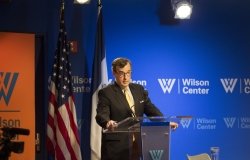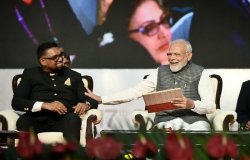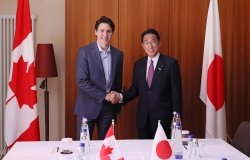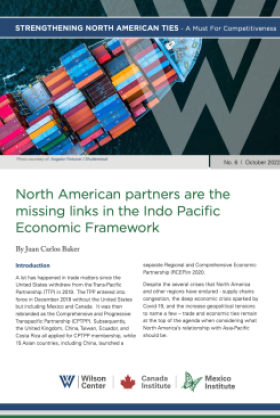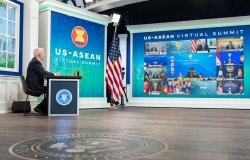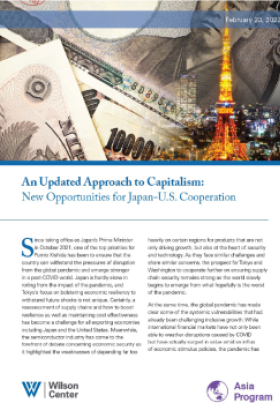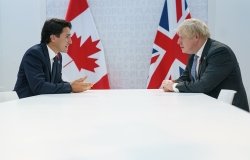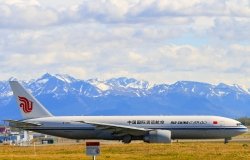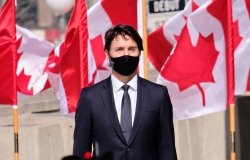New Trading Blocs in the Asia-Pacific?: TPP, RCEP, U.S.-Korea Cooperation
The Wilson Center recently partnered with the East Asia Foundation to host a half-day conference, "Asessing Threats Facing the U.S.-Korea Alliance." In the second panel discussion entitled New Trading Blocs in the Asia-Pacific?: TPP, RCEP, and US-Korea Cooperation, the Wilson Center's Asia Program director Robert Hathaway moderated a heated debate about Korea's interests and free trade regimes. The gains made since Korea signed a free trade agreement with the United States were highlighted by Choong-yong Ahn, ombudsman for foreign investment, KOTRA as well as Kent Hughes, public policy scholar at the Wilson Center and James Fatheree of the U.S. Chamber of Commerce. In addition, the KORUS agreement which came into effect in March 2012 has set the standard for U.S. negotiations in the ongoing TPP negotiations, which puts Korea in good stead to join the latest multilateral trade pact in the future. National Assembly member Mi-ae Choo, however, cautioned against the negative consequences of free trade, not least the loss of jobs in Korea. As such, Korea must assess how joining future deals including TPP may impact the environment and impact labor unions, Choo argued.
Please view the video above to see the entire discussion, and learn more about the conference or view Assistant Secretary of State for East Asian and Pacific Affairs Daniel Russel's keynote speech on our webpage.
Hosted By

Indo-Pacific Program
The Indo-Pacific Program promotes policy debate and intellectual discussions on US interests in the Asia-Pacific as well as political, economic, security, and social issues relating to the world’s most populous and economically dynamic region. Read more
